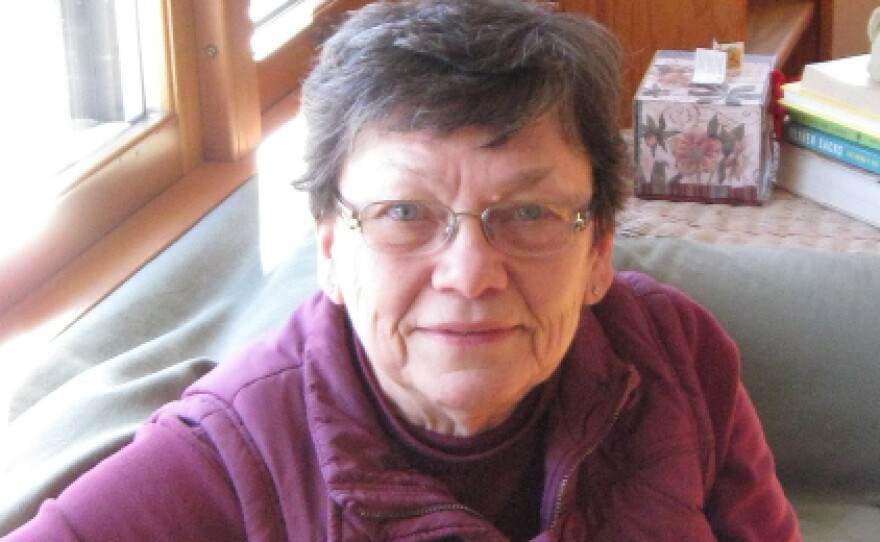Unemployment has fallen in recent months, but competition for jobs remains tough. According to one report, there are three people who want a job for every opening in the U.S. But the biggest obstacle for some job seekers is an internal one: Many simply fear going back to work.
After Jillaine Smith was laid off three years ago, she went through a period of doubting her professional skills. That was despite her 25 successful years in nonprofit management.
"It doesn't make sense rationally," Smith says. "But, inside, wherever that part is, the fear starts growing that I don't have what it takes anymore."
She says her fear began to interfere with her job search. Smith still applied for positions near her home in Bethesda, Md. But she didn't take steps that would really help land an interview — like networking.
"Did I update my LinkedIn resume and things like that? Absolutely," she says. "But did I do the stuff that requires getting up, getting dressed, getting out of the house and going and talking to people? Not so much."
Of course, this is the worst thing to do when you're running out of money. Smith's husband did work full time when she was laid off. But money was tight.
"There was certainly financial stress," she says. "I always think it's a bad sign when you have to use your credit card for groceries."
Fear Of The Unknown
Smith can tell this story because she got over the hump and is working again. A number of workers are still hung up on a fear of returning to work, but they were too embarrassed to talk about this kind of thing publicly.
Like Smith, these workers said their angst didn't really make sense, given their talents and past successes.
But they acknowledged that their fear sometimes resulted in self-sabotage. It could paralyze them to the point where they didn't even look for jobs.
"It's not like it's apparent to the person," says Mary White, a job counselor with a nonprofit called HIRED in St. Paul, Minn.
She says of job seekers, "It's not like they're saying, 'Well, I don't ever want to work again, so I'm really going to mess this up.' It's that they're saying, 'I'm scared to work again.' "
She says the fear she sees in her clients is understandable. New jobs are full of unknowns: You don't know what the culture's going to be like or whether you'll fit in.
"People are scared to death to go to parties," White says. "Why wouldn't they be scared to death to go to a new job?"

Waiting For Positive Reinforcement
Alice Ferdinand has witnessed that fear — from the other side of the interview table. She was a human resources manager for three decades. Before she retired in 2010, she met lots of job applicants who dreaded going back to work.
"It was not so much detectable in what they said at first as [in] the body demeanor: the slumped shoulders, the poor eye contact, the hesitancy to respond," she says.
Some even told her explicitly that they feared their skills had eroded or that they wouldn't enjoy working again. That might seem like a crazy thing to say to an interviewer, but Ferdinand says her grandmotherly nature prompted workers to open up to her.
And she says those confessions were not instant disqualifiers. The interview kept going if a candidate was committed to overcoming his or her unease.
"Those people were the kinds that you knew they were not clinically depressed," Ferdinand says. "And you knew the underlying angst and the underlying fear was situational and would go away when they got some positive reinforcement, that is, a job."
That's what happened with Smith. Her fears turned out to be temporary. Physical exercise, volunteer work, and some freelance gigs brought her back to a more confident version of herself.
"Getting some work helped," she says. "Getting some money in the door helped. Being productive again. Being useful. That helped."
In other words, it was enough for her to feel rewarded again, since unemployment by itself offered no rewards at all.
Copyright 2022 NPR. To see more, visit https://www.npr.org. 9(MDAzMjM2NDYzMDEyMzc1Njk5NjAxNzY3OQ001))






